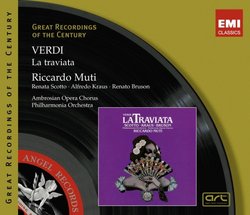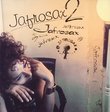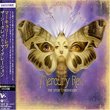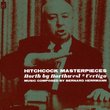| All Artists: Giuseppe Verdi, Riccardo Muti, Band of the Royal Marines (Royal Marines School of Music), Philharmonia Orchestra of London, Alfredo Kraus, Christopher Keyte, Cynthia Buchan, Henry Newman, Max Rene Cosotti, Renata Scotto, Renato Bruson, Richard van Allan, Roderick Kennedy, Sarah Walker, Suso Mariategui Title: Verdi: La Traviata Members Wishing: 0 Total Copies: 0 Label: EMI Classics Original Release Date: 1/1/2008 Re-Release Date: 3/11/2008 Album Type: Original recording remastered Genre: Classical Styles: Opera & Classical Vocal, Symphonies Number of Discs: 2 SwapaCD Credits: 2 UPCs: 400000005690, 5099950969524 |
Search - Giuseppe Verdi, Riccardo Muti, Band of the Royal Marines (Royal Marines School of Music) :: Verdi: La Traviata
 | Giuseppe Verdi, Riccardo Muti, Band of the Royal Marines (Royal Marines School of Music) Verdi: La Traviata Genre: Classical
|
Larger Image |
CD DetailsSimilar CDs
|
CD ReviewsThis may be pointless but... Albert Innaurato | Philadelphia Pa | 03/30/2008 (4 out of 5 stars) "The above review covers the Scotto field well, but of course obsessives can find other live recordings. And the performance with Carreras (looking like a teenager) is actually a video taped from Japanese TV and can be found from the usual sources. I can't decide if in this instance Scotto is better heard than seen, but she was an interesting and eventually distinctive artist. My interest is in Muti. I have a hard time accepting Toscanini and Kleiber despite the profound reverence accorded both Traviata recordings (Toscanini cut as was usual at the time). Anyone who can read a piano score can see that Traviata is filled with music in waltz time (including the moving act two duet, 'dite alla giovane') -- why do we need to have this pounded into our heads? And are those the tempos and rhythmic articulations that Verdi would have heard in his head or in the early performances? Muti takes the 'pathetic' scenes, act 2, scene 1, and act 3 much more slowly. He handles agogics (the way rhythm is articulated) subtly and interestingly; suddenly one is more aware of emotion, less of the inclination to dance. He also supports these singers superbly in their serious moments, not all of which are sweetly sung, but all of which are keenly felt. Muti's choice to push the party scenes hard makes sense -- Violetta's public life is wild and dangerous. Scotto doesn't sound young and lovely, but her authority in the part is compelling, the real thing and worth hearing. Kraus and Bruson sound old, but both really know how these parts should go (though as the other review suggests Bruson doesn't try for much nuance). I think the sound is very good, with some distance from the voices (not a bad thing). I gave it four stars for there will always be those who can't get around Scotto's sound, or who dislike Muti's approach, which is unusual." Which Traviata from Scotto is the best? Santa Fe Listener | Santa Fe, NM USA | 03/23/2008 (4 out of 5 stars) "The acclaimed Renata Scotto made a local debut as Violetta at the age of 18 in 1952, and she maintained La Traviata as a specialty throughout the rising arc of her career. I've heard three recordings on CD that capture her in various stages of vocal and dramatic achievement, and I thought it would be interesting to offer comparative comments: 1962 (DG) -- Here is Scotto in freshest voice, but even at this early stage her voice had "as much needle as thread in it," to quote a comment once made about a similar soprano, Beverly Sills. Both recorded exciting but vocally impure Violettas. In this case, the slack rhythms and lagging pace set by Antionio Votto on the podium ruin the entire performance for me, and nobody in the cast except Scotto is of much note. Also, Scotto's unique dramatic daring hadn't emerged yet. If this is her most beautiful Violetta, it's also her tamest. 1973 (Opera d'Oro) -- This off-air recording suffers from a good deal of mircophone shatter when the singers hit high notes, which is especially unflattering to Scotto's already edgy timbre. But she and her Alfredo, the young, charismatic Jose Carreras, throw off sparks, and the combinaiton is fiery and exciting. On the podium Nino Verchi, conducting before a Tokyo audience, is better than Votto but not much. Overall, however, I'd rate this a very successful reading if you don't mind the occasional aural irritation. And the bargain price doesn't hurt. 1980 (EMI) -- Although billed in this remastering as a 'Great Recording of the Century,' this studio product under Riccardo Muti finds Scotto and her Alfredo, the middle-aged Alfredo Kraus, in less than youthful voice (he had been Callas's tenor in her fabled Lisbon Traviata almost thirty years before). But in both cases the vocal deficiency is minimal, and in return we get Kraus's superbly stylish singing -- this is one of his prime roles -- and Scotto's intense dramatic instincts, which were second only to Callas's. We also get a smooth, assured if aloof Germont from Renato Bruson (not a favorite of mine), and Muti is less hard and driven than his wont. He's a titan compared to his two previous rivals. The pace is generally fast, as with Carlos Klieber on DG, and Muti gets disciplined playing from the Philharmonia. Critics originally complained about somewhat cavernous sound, but I found it intrusive only in the big scenes with chorus. Otherwise, the leading voices are caught quite naturally. In the end, this EMI set has the most pluses and fewest minuses. Only those listeners who can't abide Scotto's squawky high notes and the wobble in her voice under pressure should stay away. In the immense catalog of recorded Traviatas, this one deserves an honored place." Another great accomplishment from Muti and EMI Roberto | SF, USA | 08/23/2008 (5 out of 5 stars) "What Muti does in the party scene in the 1st act is unbelievable. His fast tempos fits extremely well. Scotto's voice is, of course, quite different from Votto's recording. I am very found of Scotto's freshness on that recording. She went through this highly difficult score with an apparent easiness that is admirable. On this recording, she is more dense (her tone reminds me Cortubas or maybe it is vice-versa). Nevertheless, it is a wonderful accomplishment. Kraus sounds very similar as his Duke in the Rigoletto recording with Beverly Sills. Incredible fresh voice for his age. Bruson is okay. That duet on the second act is so beautiful that it is very hard to mess up. Votto was Muti's mentor but in this case the apprentice surpassed the master in every single way. If we had Scotto and Bastianini from the Votto recording and Kraus and Muti from this recording, it would be a dream Traviata. Since we don't have that, this is the Traviata that I most listen to, due in great part to Muti."
|

 Track Listings (25) - Disc #1
Track Listings (25) - Disc #1

